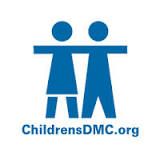Translating an Efficacious Illness Management Intervention for Youth With Asthma
| Status: | Recruiting |
|---|---|
| Conditions: | Asthma |
| Therapuetic Areas: | Pulmonary / Respiratory Diseases |
| Healthy: | No |
| Age Range: | 12 - 16 |
| Updated: | 5/3/2018 |
| Start Date: | February 1, 2018 |
| End Date: | June 30, 2022 |
| Contact: | Dixy Rajkumar, B.S |
| Email: | drajkuma@med.wayne.edu |
| Phone: | 3135771139 |
Translating an Efficacious Illness Management Intervention for Youth With Poorly Controlled Asthma to Real World Settings
The propose of the study is to test the effectiveness of Reach for Control (RFC) as compared
to Michigan MATCH to improve asthma symptoms, asthma management and lung functioning and to
decrease ED visits and admissions for youth with poorly controlled asthma when integrated
into hospital emergency departments and delivered by community health workers. The study is a
hybrid implementation-effectiveness design and will test RFC for use in real world, public
healthcare settings.
to Michigan MATCH to improve asthma symptoms, asthma management and lung functioning and to
decrease ED visits and admissions for youth with poorly controlled asthma when integrated
into hospital emergency departments and delivered by community health workers. The study is a
hybrid implementation-effectiveness design and will test RFC for use in real world, public
healthcare settings.
The study will be conducted in the emergency department at Children's Hospital of Michigan;
CHM). 170 adolescents with poorly controlled asthma and their primary caregivers will be
enrolled. Families will be randomly assigned to six months of home-based family treatment
consisting of either RFC or Michigan MATCH , a model program endorsed by the State of
Michigan for treatment of poorly controlled asthma. Treatment content of RFC consists of
weekly sessions focusing on asthma education, asthma management skills, improving home-school
community for asthma, access to care and case management. MATCH includes asthma education but
is less intensive and does not focus on family management skills. Treatment will be provided
by community health workers (CHWs) employed by a community agency providing MATCH as their
standard of care. Consent and data collection will be completed in the home at baseline with
additional data collection visits at 6, 12 and 18 months after baseline. Data collection is
completed by project research assistants and consists of questionnaires and interviews with
the adolescent and parent to assess asthma management, asthma symptoms and hospital
utilization. The adolescent also completes a pulmonary function test on a portable spirometer
and is observed using medication devices to assess asthma care skills objectively.The data
analyses will be intent-to-treat, meaning that all randomized participants are included
regardless of the intervention dose received. Trial data will analyzed using the linear mixed
effect models.
CHM). 170 adolescents with poorly controlled asthma and their primary caregivers will be
enrolled. Families will be randomly assigned to six months of home-based family treatment
consisting of either RFC or Michigan MATCH , a model program endorsed by the State of
Michigan for treatment of poorly controlled asthma. Treatment content of RFC consists of
weekly sessions focusing on asthma education, asthma management skills, improving home-school
community for asthma, access to care and case management. MATCH includes asthma education but
is less intensive and does not focus on family management skills. Treatment will be provided
by community health workers (CHWs) employed by a community agency providing MATCH as their
standard of care. Consent and data collection will be completed in the home at baseline with
additional data collection visits at 6, 12 and 18 months after baseline. Data collection is
completed by project research assistants and consists of questionnaires and interviews with
the adolescent and parent to assess asthma management, asthma symptoms and hospital
utilization. The adolescent also completes a pulmonary function test on a portable spirometer
and is observed using medication devices to assess asthma care skills objectively.The data
analyses will be intent-to-treat, meaning that all randomized participants are included
regardless of the intervention dose received. Trial data will analyzed using the linear mixed
effect models.
Inclusion Criteria:
Adolescent/Parent:
1. Child aged 12 years, 0 months to 16 years, 11 months
2. Moderate to severe persistent asthma
3. Child seen in the CHM emergency department for treatment of asthma exacerbation
4. Child has experienced 2 or more ED visits and/ or inpatient admissions in prior 12
months (i.e. poorly controlled asthma)
5. Parent/ legal guardian willing to participate in home-based family treatment
6. Child and family resides within 20 miles of CHM (allows for home-based data collection
and intervention)
Exclusion Criteria:
Adolescent/Parent:
1. Child is currently in an out-of-home placement
2. Schizophrenia or other psychosis on the part of the youth or parent
3. Current suicidality or homicidality on the part of the youth or parent
4. Cognitive impairment or learning disability that prevents comprehension of research
measures on the part of parent or youth
We found this trial at
1
site
Children's Hospital of Michigan Since 1886, the Children's Hospital of Michigan has been dedicated to...
Click here to add this to my saved trials
